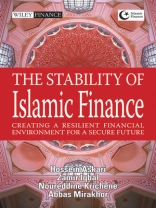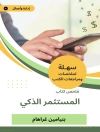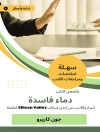The Stability of Islamic Finance main focus is on thequestion of the sources of financial instability which seemsinherent in the conventional system. As a core component of thisfocus, the book will consider episodes of turbulence andinstability in a historical context recalling the occurrence ofsuch events from mid-19th century to the present. It will presentvarious theoretical explanations along with solutions andalternative financial systems that avoid instability provided byvarious scholars dating back to mid-19th century to present.
The book then will present and discuss the architecture of an Islamic financial system and show that at its core, this systemshares many characteristics of an stable financial system proposedby Western scholars throughout history to avoid the inherentinstability of the present dominant system. Particular emphasiswill be placed on the present financial crisis and its causes aswell the financial crisis of the 1997 in Southeast Asia, Russia, and Latin America relating these episodes to the fundamentalfeatures of the dominant system. The debt crisis of the low incomecountries will also be part of this discussion. It will then arguethat these crises could be mitigated under an Islamic system or anyother system with similar architecture.
İçerik tablosu
Foreword ix
Acknowledgments xiii
Glossary of Arabic Terms xv
Introduction 1
CHAPTER 1 The Nature of Capital and the Rate of Return 11
CHAPTER 2 The Origins of Financial Panics and Recessions 23
CHAPTER 3 Monetary Policy and Financial Crises 37
CHAPTER 4 The Internationalization of Financial Crises 45
CHAPTER 5 The Role of the Credit Multiplier in Financial Crises61
CHAPTER 6 The Inherent Stability of Islamic Finance 75
CHAPTER 7 A Theoretical Model of the Inherent Stability of Islamic Finance 83
CHAPTER 8 Asset Pricing and Risk in Islamic Finance 93
CHAPTER 9 Islamic Financial Intermediation and Markets 113
CHAPTER 10 Risk Profi le of Islamic Financial Intermediaries131
CHAPTER 11 Financial Engineering, Derivatives and Financial Stability 141
CHAPTER 12 Corporate Governance and Financial Crises 163
CHAPTER 13 The Performance of Islamic Financial Intermediariesand Products 183
Conclusion 209
Bibliography 217
Index 225
Yazar hakkında
PROF. HOSSEIN ASKARI received all his university education, including a Ph.D. in economics, at MIT. He has taught at MIT, Tufts University, the University of Texas at Austin and is now the Iran Professor of International Business and International Affairs atthe George Washington University. He served for two and a halfyears on the Executive Board of the IMF and was Special Advisor tothe Minister of Finance of Saudi Arabia. In the mid-1980s he wasthe director of a multinational team that developed the firstenergy plan and energy planning models for Saudi Arabia. He haswritten extensively on economic development in the Middle East, international trade and finance, agricultural economics, oileconomics, economic sanctions, and on Islamic economics andfinance.
DR. ZAMIR IQBAL works as Lead Investment Officer in the Treasury of the World Bank in Washington, D.C. He earned his Ph.D.in International Finance from the George Washington University, where he also serves as adjunct faculty of International Finance.He has extensive experience with capital markets, structuredproducts, risk management, financial sector development, andfinancial modeling. His research interests include Islamic finance, financial engineering, structured finance and risk management. Heis co-author of several books on Islamic banking and finance.
DR. NOUREDDINE KRICHENE received his Ph.D. in economics, University of California, Los Angeles, 1980; joined the International Monetary Fund (IMF) in 1986; and held the position ofadvisor at the Islamic Development
Bank.
DR. ABBAS MIRAKHOR received his Ph.D. in Economics from Kansas State University in 1969. After teaching at variousuniversities in the USA and in Iran he joined the staff of the Research Department of the IMF in 1984. He became an Executive Director of the IMF from 1990 until his retirement in 2008. He isthe author of a number of articles and books on Islamic economicsand finance. He is now the first holder of the INCEIF Chair in Islamic Finance.












